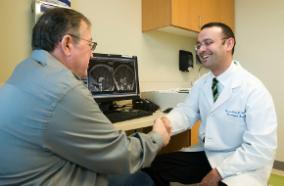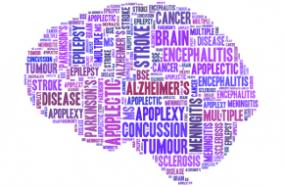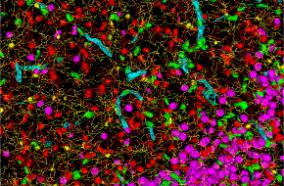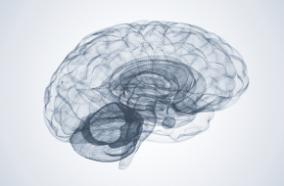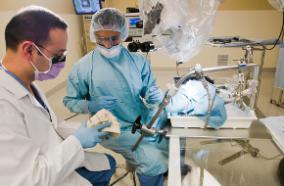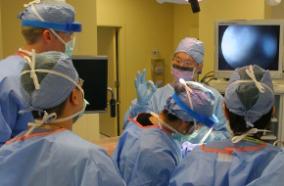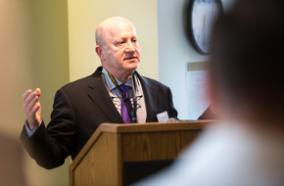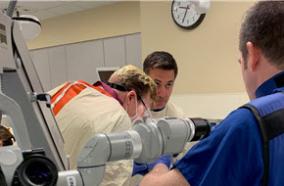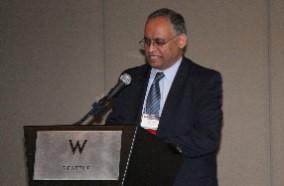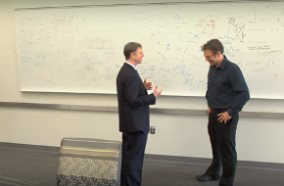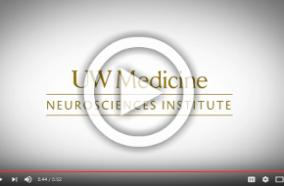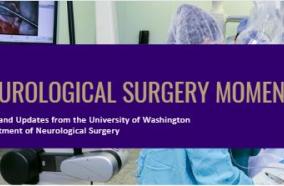Compression of the cranial nerves V, VII, VIII and IX by arteries or veins near the brain stem may lead to disorders such as trigeminal or glossopharyngeal neuralgia, hemifacial spasm, disabling vertigo or tinnitus. Neuralgia describes sharp pain that extends along a nerve or group of nerves. Glossopharyngeal neuralgia can cause episodes of severe pain in the tongue, throat, ear, and tonsils. Trigeminal Neuralgia, also known as “tic douloureux,” can cause episodes of intense, electric shock-like pain in areas of the face where the branches of the nerve are distributed. Hemifacial spasm is an involuntary twitching of one side of the face.
When these problems do not respond to medical treatment, it can indicate the need for microvascular decompression, performed by a retrosigmoid craniotomy. Microsurgery is assisted with visualizations provided by an endoscope. Retrosigmoid refers to that area of the skull base immediately behind the ear.

